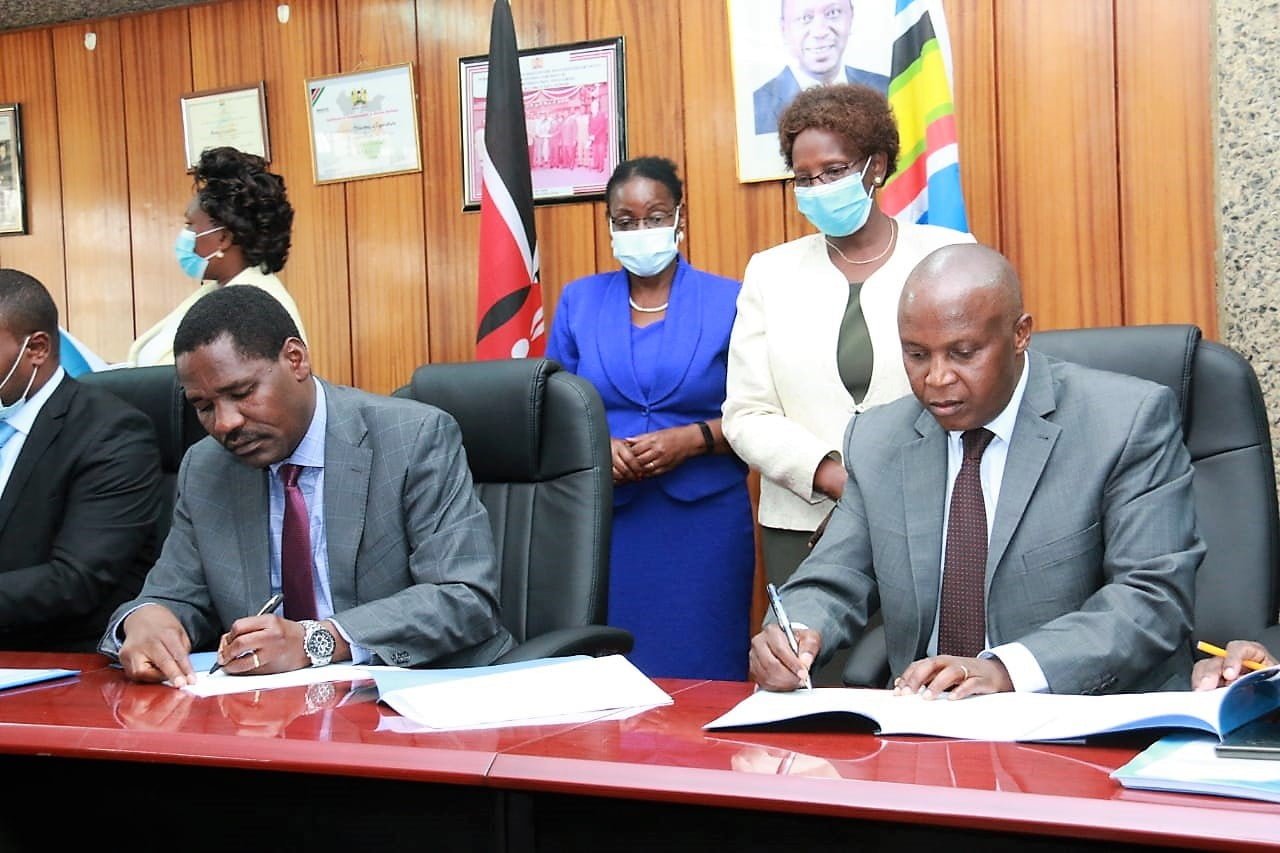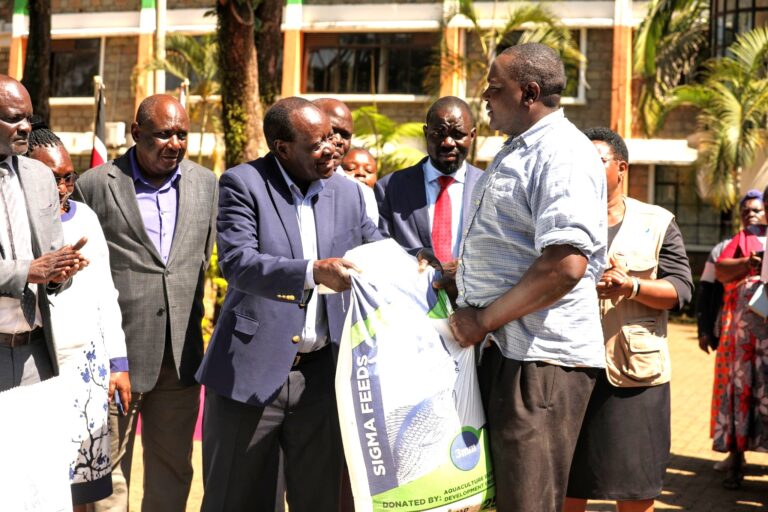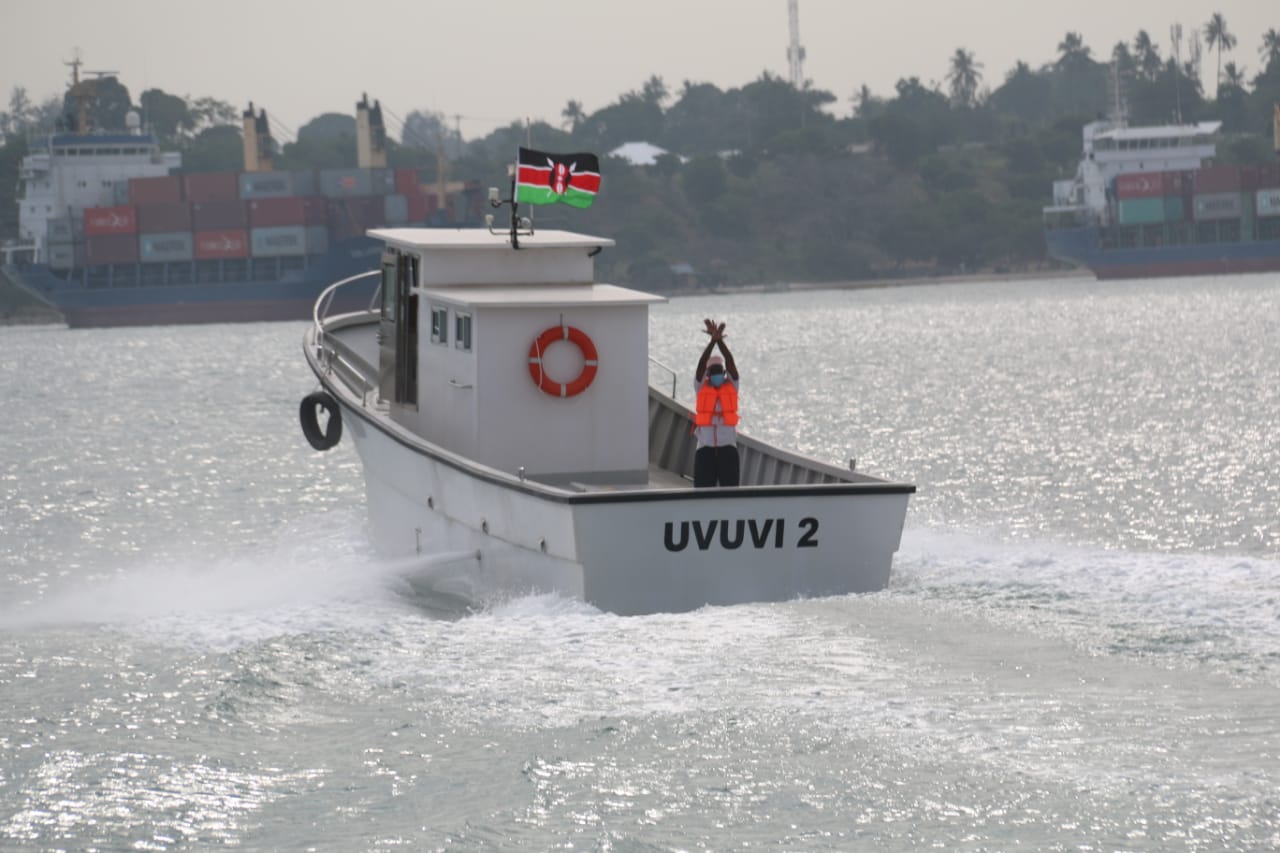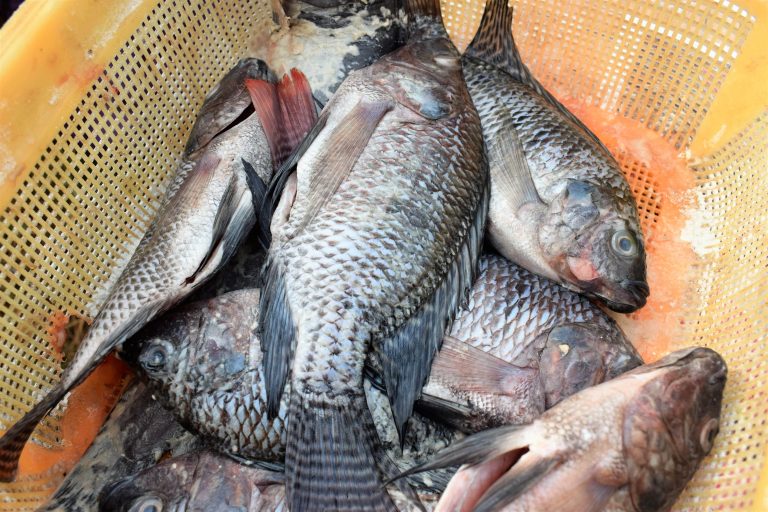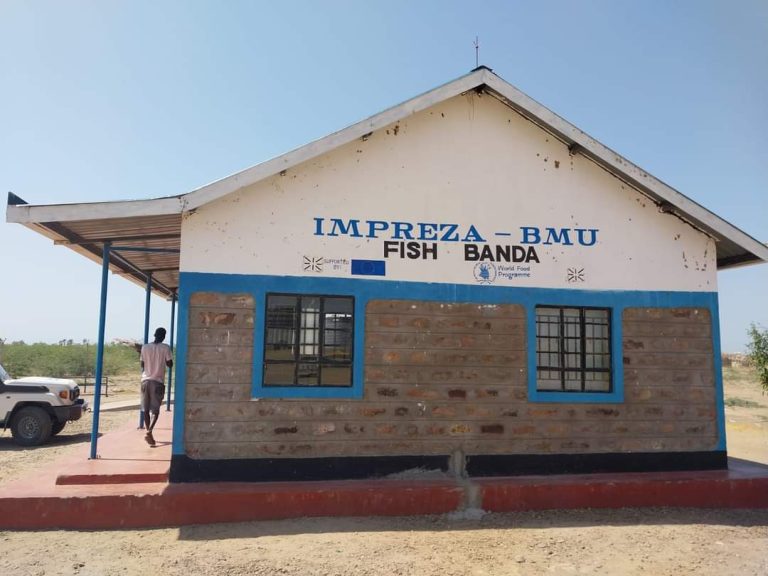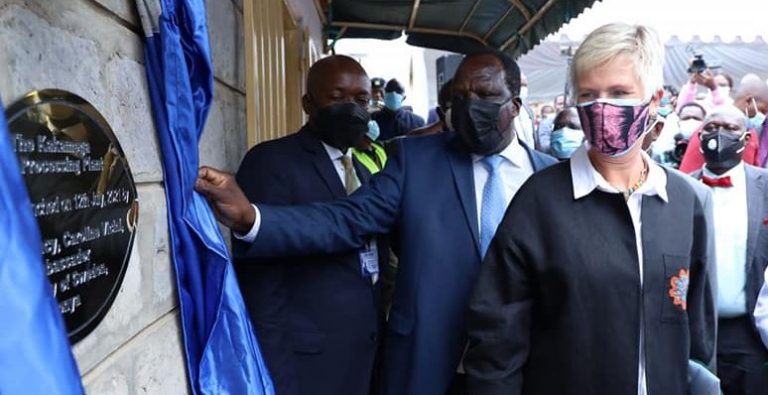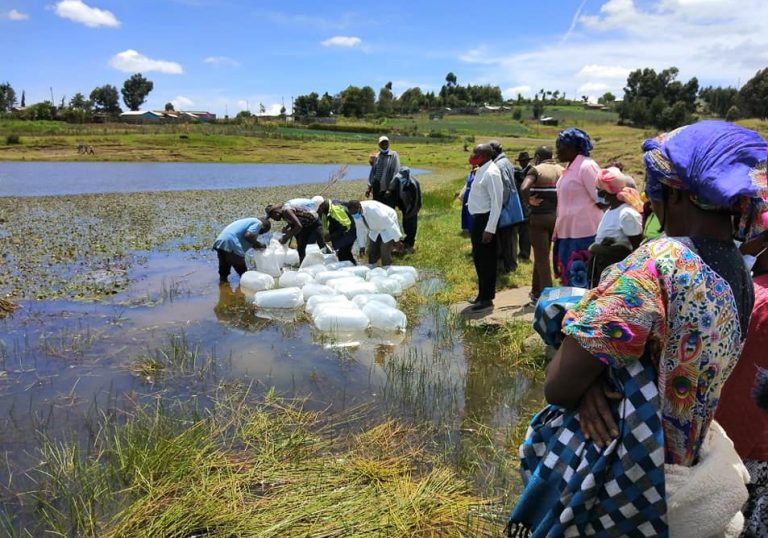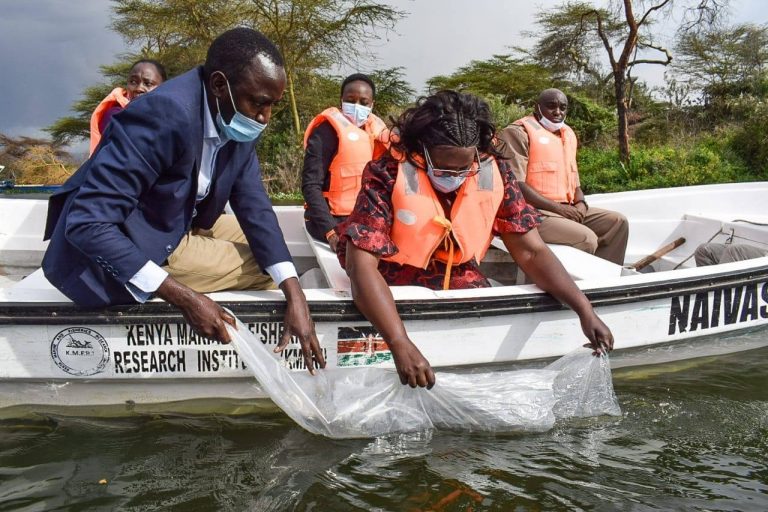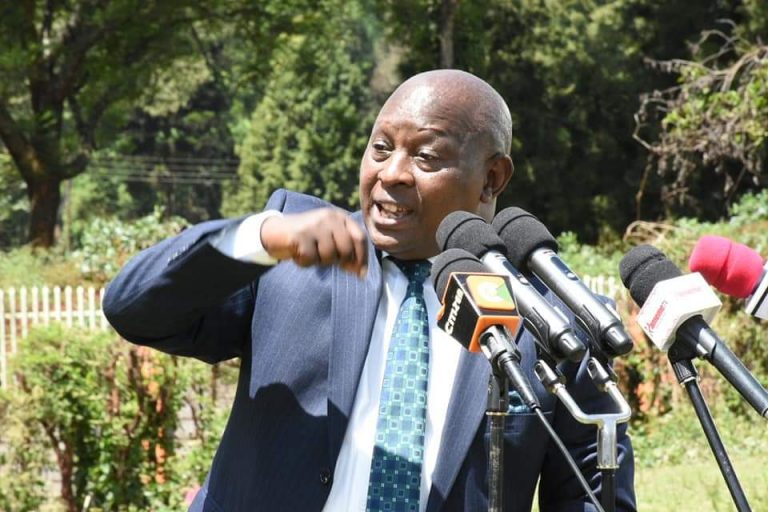A participation agreement has been signed between the Ministry of Agriculture and five counties, for the Kenya Marine Fisheries Social Economic Project (KEMFSED). The project is funded by the World Bank at a cost of Ksh. 10 billion.
The project’s objective is to improve governance and management of the marine fisheries and aquatic resources, promote investment in marine fisheries and coastal aquaculture (mariculture), as well as strengthen coastal livelihoods. It is designed to advance equitable opportunities for participants during economic growth, with benefits shared to every section of the society. The participating counties are Lamu, Tana River, Kilifi, Mombasa and Kwale.
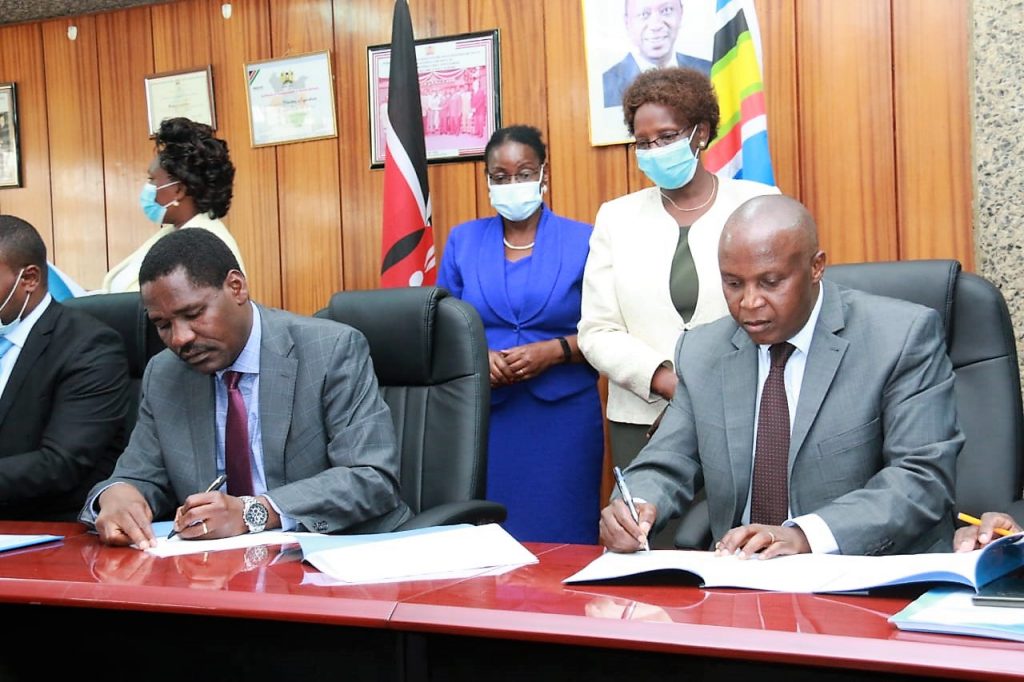
Agriculture CS Peter Munya says the project is based on two problem statements
(a) Weak governance of marine fisheries adversely affects the sustainable generation of optimal benefits for the overall economy and coastal communities; and
(b) Coastal communities are poor, have narrow income base, and depend on fisheries for livelihoods (which lead to overfishing pressures). He says that the project design has therefore adopted two principles: fisheries management needs to be strengthened; and associated, cooperation of the private sector and coastal communities is essential.
“Fisheries provides high and easily absorbed protein, minerals and oils which can reduce malnutrition among the population thereby equipping them health-wise. It is also the most traded commodity in the world and being labour-intensive, generates many jobs. Let us promote circular economies in order to maximize the returns from the fisheries as well as protect the aquatic ecosystems. KEMFSED project comes at an opportune time to support this,” says Munya.
Capture fisheries globally have challenges of overexploitation and Illegal and Unregulated (IUU) fishing. The SDG 14 and Port State Measures Agreement (PSMA) targets to eliminate IUU. “In Kenya, we are aware that our 13,000 fishers are small–scale concentrated in the near-shore which has declined as the number of fishing boats increase. As a Ministry, we target to move the fishers in the deeper waters by building their capacity to venture into the territorial sea and the Exclusive Zones fisheries,” adds the CS.
Munya says they have trained 100 fishers in Kilifi and 86 in Lamu so that they can participate in the deepwater fishing. The training was interrupted by the COVID pandemic and he says it will resume so that all the 5 counties are covered. “We believe that with this large number of skilled fishers, we will be able to reduce the number of Wapembas as well as place Kenyans in industrial fishing boats this increasing employment for the youths in the fishing industry in Kenya. We expect that the fishers will form stronger associations that will enable them to own semi-industrial and industrial fishing vessels to participate in the tuna and tuna-like fishery currently dominated by the foreign fishing companies. The project will support the offshore marine governance and skills,” opines the CS.
The CS says Kenya now has robust legal tools and institutions to undertake management and fight against IUU fishing which will be strengthened while observing that the biggest weakness in capture fisheries has been compliance and reporting. For enforcement, the Kenya Coast Guard Services has been established. The project will support the fishers and institutions charged with data collection and enforcement. “We will work together to ensure that fishers affected by the management measures are provided for in alternative livelihoods under the project. Counties will be expected to provide the technical back-stopping on the livelihood support projects,” says Munya.
The CS says freshwater aquaculture development country-wide was supported under the Economic Stimulus Project (ESP), however, mariculture was not promoted at that time because there were no hatcheries to produce high-quality seeds and people relied on wild seasonal fish seeds. He says the project will support fish-farming through the construction of the National Mariculture Resource Centre which will not only research on better farming systems and fish species but also produce marine fish seeds and train the farmers. This will have a ripple effect as other farmers produce fish feeds form the local material to support mariculture.
“We have the best artemia, a living feed for the larvae of marine fisheries but this is not produced commercially in Kilifi because mariculture is limited, so there is no domestic demand. This industry can employ women and youth with good returns if done professionally adhering to standards. The project is looking at supporting not only the fisheries value chains but also high-value agriculture value chains such as moringa, chilli and oil crops, which will promote job creation and incomes for the displaced fishers and their dependents. I am told that there is an algae which is a superfood for the future called Spirulina, let the technology be transferred to our people. Since this is a performance-based project, I call upon you to guide the eligible communities to develop sound the proposals and implement according to the guidelines,” says Munya.
The project will be officially launched immediately post-COVID 19 openings at the Coast in one of the Counties.


